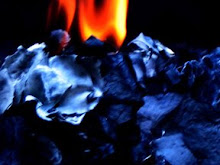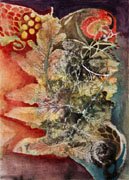Last week a powerful combination of unseasonably high temperatures and artic air from Canada collided over our area and produced an explosive storm. Heat lightning illuminated the skies as 50-60 mph gusts swirled the trees in a circular motion,horizontal rain lashed everything. Huge trees were uprooted, power was lost for days, for those of us in the hills so was phone service and water, as most wells have electric pumps.
Having grown up in the hurricane zone in the South and losing the family home to Hugo I thought I had escaped the tropics here in the cool northern woods. After the recent microburst and the blustery days all Spring it obviously isn’t so.
As most scientific communities and environmentalists recognize things have dramatically changed and we are in essence living on a new planet. Most of us are still thinking the "global warming thing" is decades away. We flip the channel when the latest volcanic eruption, tornado, typhoon, earthquake, flooding etc. is shown in yet another part of the world. The oil spill in the Gulf of Mexico further depresses us… and it is depressing.
Bill McKibben, a renowned environmentalist, writer, activist rang the warning bell about global warming in 1989 in his book, The End of Nature. In his newest book, Eaarth: Making a Life on a Tough New Planet he clues us in that we “aren’t in Kansas anymore”.In a sober but not hopeless tone he urges us to look at the data from the last three years and face the facts, our climate isgoing to be totally unpredictable for the long haul.
This is the most important book for all of us to read this summer. After you swallow the bitter medicine of the current state of affairs and finally understand how interconnected it all is, you wonder what you can do.Well actually there are lots of things that are being done on local levels worldwide. 10/10/10 is a major day of action to wake up the world to new ways of living that can sustain us locally as we attempt the goal of scaling back CO2 emmissions to 350 parts per million.We are heading up past 375 now quite rapidly.
To empower us in living the new reality Bill has started an international movement called 350. You can read articles, keep abreast of the latest ideas of sustainability and make a difference by going to the website www.350.org. Getting back to basics, becoming more self-reliant is something urbanite and country dweller can do when creatively thought through and implemented. Let’s all take off the blinders and get to work!
Friday, June 4, 2010
Subscribe to:
Post Comments (Atom)


















No comments:
Post a Comment